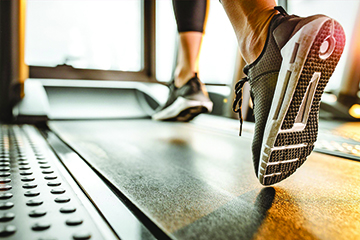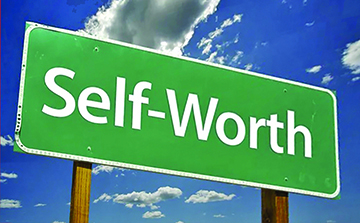Is Important In An Increasingly Critical Society
“Believe you can and you’re halfway there.”
- Theodore Roosevelt
The way you carry yourself as you go about your daily business has a lot to do with how people react to your presence.
Your physical posture, the way you walk, the expression on your face, and other nuances of body language send out a message. In the instance of a confident person, you exude strength and internally fortified will. To the contrary, if you entertain unhealthy amounts of self-doubt — it will show in your demeanor — and therein lies the problem.
Self-confidence and lack thereof is the result of internal transactions. Confidence is informed by “what you say when you talk to yourself” — a reference to the wildly successful work of author Shad Helmstetter. The notions of high and low self-esteem are reinforced by how you react to everyday events — whether you are a participant or a spectator. Rarely do people remain stagnant in the face of the constant comparisons, deprecations, and self-criticisms that are all the rage today — especially among young folks. You either buckle under social pressure and give in to low self-esteem or you make a conscious decision to fight it.
An Internal Struggle
In today’s viscously hypercritical society, many people are subjugated by the strictures of an unachievable ideal. Yet others, far fewer in number, learn to steel themselves against the judgements of the status quo. The former is the path of a person who is constantly afflicted by feelings of inadequacy. The latter is a way to create a unique identity by pursuing a set of personal aspirations rather than measuring yourself by the yardstick of others.
The question, then, is how to avoid one while embracing the other. Thankfully, there are several ways to gradually build and maintain confidence and self-esteem without becoming an insufferable, overblown egomaniac. Meanwhile, this pursuit can help you insulate yourself against the quagmire of cultivating a lousy self-image.
Exercise Often

Self-esteem can be bolstered by positive daily habits including rigorous exercise, healthy diet, and sufficient sleep.
While doing a few pushups here and some jumping jacks there is a good start, maximizing this step requires a more comprehensive approach. By engaging in some form of physical exertion at least three times a week for 20 or 30 minutes, you are training your body to release endorphins which induce positive feeling while reducing your brain’s perception of pain. The best way to start is to pick a type of exercise you genuinely enjoy, and which suits your abilities, such as walking, running, swimming, or yoga. If you are new to the world of working out and you decide to become a bodybuilder overnight, you will wind up mired in unrealistic expectations, disappointment, and potentially plummeting self-esteem.
Eat Real Food
Refined carbohydrates such as processed flour and rice, sugar-sweetened juices and sodas, and processed snacks such as corn chips, cookies, and pastries can cause inflammation and hormonal imbalances due to high levels of sugar and indigestible compounds disguised as food. Conversely, raw fruits and vegetables, sprouts, leafy greens, lean meats such as chicken and fish, as well as water from a spring or a reverse osmosis filter are all easily absorbed by the body. A diet of these foods will help you to feel better after eating and more inclined to exercise whereas a diet of junk which your body cannot process will leave you feeling tired and unmotivated which can, in turn, lead to negative internal dialogue.
Get Plenty Of Sleep

Self-worth can be successfully maintained by evaluating oneself from within rather than comparing oneself to others.
Optimism and self-esteem begin with a good night’s sleep. A recent report by Harvard University’s Dr. Lawrence J. Epstein states that, “Sleep and mood are closely connected; poor or inadequate sleep can cause irritability and stress, while healthy sleep can enhance well-being.” Epstein goes on to explain, “It’s possible to eliminate many minor sleep problems by creating a comfortable sleep environment, maintaining a healthful balance of nutrition and exercise, and engaging in relaxing activities near bedtime.”
Go Easy On Yourself
When you make a mistake, and everyone does, resist the urge to punish yourself with a bunch of negative internal scolding. Whatever setback you may have encountered is enough of a reminder without willingly inflicting further damage to your self-confidence. That is not to say that denying anything went wrong is a smart course of action but having a bit of compassion for your own grazed ego can help you get back to work and put things you can’t change behind you.
Face Them Down
Stepping outside of your comfort zone is a terrific way to build self-esteem and confidence. The simple act of facing your fears, whether you succeed or not, is an effective way of building yourself up internally based on your own perceived limitations. Granted, jumping out of a helicopter without a parachute is a legitimate fear and is a practice best left to movie stuntmen. Yet, exposing yourself to non-lethal fears such as public speaking, swimming in a shallow, supervised pool, or petting a trained, tame dog can do wonders for your anxiety levels. Small victories over irrational fears can build up your self-confidence and eventually lead you to experience huge breakthroughs.


